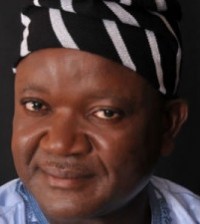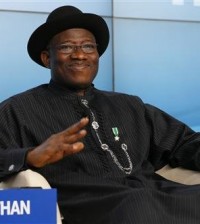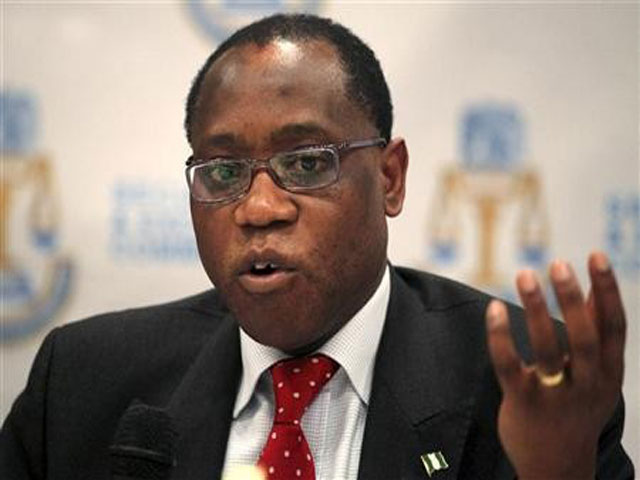President Goodluck Jonathan Approves N59.3bn Onne Port Phase 4 Project
The Federal Executive Council (FEC) Wednesday ratified the anticipatory approval granted by President Goodluck Jonathan to Intels (Nig) Ltd. for the commencement of phase 4 of the Onne Ports Complex expected to create over 25,000 jobs at the cost of $370,481,720.42. (N59,277,-075,267.2)
The Council was also briefed by the Minister of Power, Professor Barth Nnaji, who disclosed that Nigeria had recovered from the drop, some weeks back, in electricity generation to cross the 4,000 megawatts line with the repairs to damaged facilities which starved gas supply to power plants in the country.
Briefing State House correspondents after the meeting that lasted for about an hour and presided over by the Vice-President, Namadi Sambo; Minister of Information, Mr. Labaran Maku, said Intels had proved to be a good partner and ally of the Federal Government. He said the company invested money in the ports when other investors were running away and commended them for handling the Onne Ports well.
He said the new phase was needed to help cope with increased shipments in the oil and gas sector while no fewer than 2,500 direct and indirect jobs would be created by the activity and another 20,000 when all facilities had been installed.
“So because of the importance of the project, council today considered and ratified Mr. President’s anticipatory approval for the award of contract for fast-tracking the development of the phase 4 port facilities at Onne Port complex, for NPA/ Ministry of Transport, in favour of Messrs Intels (Nig) Ltd, in the sum of $370,481,720.42 payable at the prevailing exchange rate at the time of payment with 40 months as completion period.
“The funding of this project is coming completely from the company Messrs Intels (Nig) Ltd. This company has proved over and over again particularly in the first three phases of the Onne port, that it is dependable. The company was able to take risk at a time that most investors in the private sector were not forth-coming in terms of partnering government to put funds of ground and develop port facility. The process of repayment will come from taxes paid from the port over a period of time.
“This frees government stringent budget conditions particularly in the public sector and enables us to have access to capital from the private sector for the development of this port,” Maku explained.
Explaining further, Minister of Transport, Senator Idris Umar pointed out that if the privatisation process was well monitored, a lot of revenue would accrue there from, pointing out that the details of the job to be done in the tranche included sand filling, land reclamation, widening the entry channel, construction of berths nine, 10 and 11as well as standardisation of some facilities there.
Nnaji in his briefing said: “About two weeks ago for the first time in the country we crossed the 4,000 megawatts in generation and this quiet a departure from a year ago. This 4,000 megawatts while is not enough to support the country it has at least supported activities in the homes to the extent that we are receiving reports on receiving more stable electricity”.
Going further he noted that “Two things are associated, one is increased capacity that went from last year where it used to be 2,800mw to now more than 4,000 not including the spinning reverse of almost 300 mw. So is quiet significant improvement in percentage but not enough to really deliver electricity to everybody in Nigeria in a reliable form”.
He explained that the outages experienced two weeks ago was due to gas supply issues as a facility was shut down to repair a pipeline due to vandalisation at Utorogun and Forcados which have been fixed while the gas supply pressure was building back to normal.
The Power Minister said he had feared that Nigeria would lose 1,400 megawatts then but said they lost less before the problem was fixed by Shell, adding that “During that period we lost supply to Sapele, Ugeheli, Egbin, Olorunshogo 1 and 11 and Omotosho. Also we lost gas going to Geregu, so we were not able to get enough supply that is why we had such low power”.
On the way out, he said that they have resorted to looping mechanism which will diversify supply and ensure that when a supply line is out, it would be supplied by another to ensure steady power as well as stop total system collapse so that there would no longer be a time that the nation would be thrown into total darkness.
Thisday
Related Posts
Latest News
-
FCMB Bank (UK) Limited Launches Personal and Business Banking Proposition to Deepen Inclusiveness
FCMB Bank (UK) Limited, an independently incorporated subsidiary of First...
- Posted August 1, 2018
- 0
-
The Worrisome Trend of Sensational Social Media “Journalism” and the Impact On Legitimate Business Concerns: Recent Travails of FCMB, GTBank and First Bank
On June 25, 2018 I woke up to yet another...
- Posted June 26, 2018
- 0
-
FCMB attains ISO Certification for Quality Management
Leading financial services provider, First City Monument Bank (FCMB), has...
- Posted May 16, 2018
- 0
-
Over 1,000 firms bid for 2017 railway projects
Over 1000 companies expressed interest in 17 categories of projects...
- Posted October 20, 2017
- 2
-
NAICOM moves to enforce compulsory insurance of public buildings
To drive the enforcement of the compulsory insurance of public...
- Posted October 20, 2017
- 11
-
Reps ask NPA to reverse termination of agreement with Intels
The House of Representatives yesterday waded into the ongoing controversy...
- Posted October 19, 2017
- 1
-
SEC suspends Oando shares from stock market
The Securities and Exchange Commission has ordered the Nigerian Stock...
- Posted October 19, 2017
- 1
-
FCMB Bank (UK) Limited Launches Personal and Business Banking Proposition to Deepen Inclusiveness
FCMB Bank (UK) Limited, an independently incorporated subsidiary of...
- August 1, 2018
- 0
-
The Worrisome Trend of Sensational Social Media “Journalism” and the Impact On Legitimate Business Concerns: Recent Travails of FCMB, GTBank and First Bank
On June 25, 2018 I woke up to yet...
- June 26, 2018
- 0
-
Azman Air commences flight operation in Sokoto
Azman Air Thursday commenced flight operation to Sokoto state....
- February 21, 2015
- 424
-
NRC increases Lagos goods trains, eyes fuel haulage
The Nigerian Railway Corporation says it has increased its...
- June 23, 2016
- 100
 Nigeria News
Nigeria News
- Transfer: Noni Madueke decided to leave Chelsea – Maresca confirms Arsenal move
- Ballon d’Or 2025: Gareth Bale names player to award
- Transfer: Two players leaves Chelsea ahead of PSG clash
- UEFA announces new EPL teams to play Europa, Conference League
- Assailants cut off man’s hand, injures another over girlfriend








